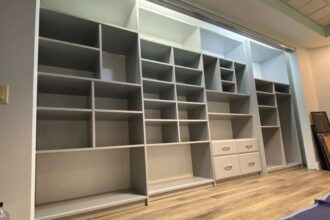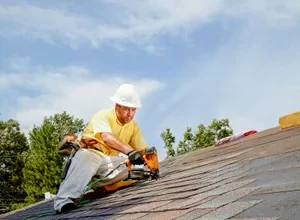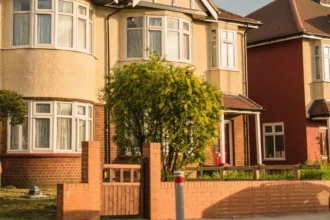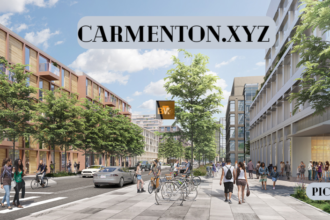Manhattan homeowners often experience sticker shock when they receive their first renovation estimate. A kitchen remodel that might cost $40,000 in suburban markets suddenly jumps to $70,000 or more. A bathroom renovation doubles in price. What drives these dramatic cost differences, and how can you budget realistically for your Manhattan home remodeling project?
- The Manhattan Premium: Why Everything Costs More
- Hidden Costs That Derail Manhattan Renovation Budgets
- Breaking Down Manhattan Renovation Costs by Project Type
- The Real Timeline Costs of Manhattan Projects
- Contractor Pricing Strategies in Manhattan
- Smart Budgeting Strategies for Manhattan Renovations
- Financing Your Manhattan Renovation Investment
- Making Every Dollar Count in Your Manhattan Renovation
Understanding the true cost structure of Manhattan renovations goes beyond simple square footage calculations. The city’s unique challenges—from building restrictions to logistics nightmares—create hidden expenses that catch many homeowners off guard. This comprehensive cost breakdown reveals exactly where your renovation dollars go and how to plan for expenses that don’t appear in initial estimates.
The Manhattan Premium: Why Everything Costs More
Manhattan renovation costs typically run 25-40% higher than national averages, but this premium stems from specific, unavoidable factors rather than contractor greed.
Labor costs drive the largest portion of this increase. Skilled tradespeople in Manhattan command premium wages—master electricians earn $80-120 per hour compared to $45-65 in most suburban markets. Union requirements on many projects add additional labor costs and specific work rules that can extend timelines.
Material transportation creates unexpected expenses. That custom vanity for your bathroom renovation requires special delivery scheduling, often involving weekend or early morning deliveries to avoid traffic restrictions. Many buildings charge porter fees ranging from $50-200 per delivery, and materials frequently require hand-carrying up multiple flights due to elevator restrictions.
Building-specific requirements add another cost layer. Co-ops and condos often mandate specific contractors, insurance levels, or work procedures that limit competitive bidding and increase project expenses.
Hidden Costs That Derail Manhattan Renovation Budgets
Successful home remodeling in Manhattan requires budgeting for expenses that suburban homeowners never encounter. These hidden costs often add 15-25% to initial project estimates.
Building and permit fees extend far beyond basic DOB permits. Many buildings require renovation deposits of $2,000-10,000, refundable only after project completion and damage inspection. Some co-ops charge additional fees for elevator usage, common area protection, or accelerated approval processing.
Storage and logistics costs accumulate quickly in small Manhattan apartments. Homeowners typically need storage units for displaced belongings, costing $150-400 monthly. Some projects require off-site material storage due to space constraints, adding monthly fees and additional delivery costs.
Temporary living expenses become necessary for major renovations in studio or one-bedroom apartments. Hotel costs, extended stays with friends, or short-term rentals can add $3,000-8,000 to project budgets for extensive kitchen or bathroom remodels.
Discovery costs plague older Manhattan buildings. Removing walls often reveals outdated electrical systems, plumbing issues, or structural problems requiring immediate attention. These discoveries can add $5,000-15,000 to renovation budgets, particularly in pre-war buildings.
Breaking Down Manhattan Renovation Costs by Project Type
Kitchen renovations represent the most popular Manhattan home remodeling projects, with costs varying dramatically based on scope and finishes.
Basic kitchen updates ($25,000-40,000) include new appliances, cabinet refacing, countertop replacement, and cosmetic improvements without layout changes. These projects typically avoid major permit requirements and are completed within 2-4 weeks.
Mid-range kitchen remodels ($40,000-70,000) involve cabinet replacement, layout modifications, new flooring, and upgraded appliances. Permit requirements and potential electrical or plumbing updates extend timelines to 6-10 weeks.
High-end kitchen renovations ($70,000-150,000+) feature custom cabinetry, premium appliances, stone countertops, and significant layout changes. These projects often require structural modifications, extensive permits, and 3-4 month timelines.
Bathroom renovations follow similar cost structures but with different space constraints. Basic updates range from $15,000-25,000, while full renovations with high-end finishes can exceed $50,000 for larger master bathrooms.
Storage solutions provide excellent value in Manhattan’s space-constrained market. Custom built-ins typically cost $2,000-8,000 but add functionality worth far more in increased property value and daily convenience.
The Real Timeline Costs of Manhattan Projects
Time equals money in Manhattan renovations, and projects consistently take longer than homeowners expect. Understanding timeline realities helps prevent budget overruns from extended temporary living arrangements or delayed completion benefits.
Permit approval processes add 3-12 weeks before construction begins. Standard Alt-2 permits are typically approved within 2-4 weeks, but landmark district properties or complex projects can require 8-12 weeks. Board approval adds another 2-6 weeks, depending on building procedures and board meeting schedules.
Construction timelines extend due to building restrictions and logistics challenges. Many buildings limit work to weekday business hours, effectively doubling project duration compared to unrestricted suburban schedules. Material delivery delays are common due to traffic restrictions and building access limitations.
Weather and seasonal factors impact timelines and costs. Summer construction often faces noise restriction complaints, while winter weather can delay deliveries and exterior work. Holiday seasons typically halt progress for 1-2 weeks due to building policies and contractor availability.
Contractor Pricing Strategies in Manhattan
Understanding how Manhattan contractors price projects helps homeowners evaluate estimates and negotiate effectively.
Most experienced contractors build Manhattan premiums into their base pricing rather than itemizing city-specific costs. This approach simplifies estimates but can make comparison shopping difficult when contractors use different premium calculations.
Insurance and licensing costs significantly impact contractor pricing. Manhattan contractors typically carry higher liability coverage due to property values and lawsuit risks. These costs get passed through to homeowners in hourly rates and project pricing.
Overhead expenses for Manhattan contractors include commercial parking, tool storage in expensive real estate markets, and higher business insurance costs. Established contractors with Manhattan experience build these costs into competitive but realistic pricing structures.
Subcontractor availability affects pricing substantially. High-quality tradespeople stay busy in Manhattan’s active renovation market, commanding premium rates for their services. Contractors often need to schedule projects months in advance to secure preferred subcontractor teams.
Smart Budgeting Strategies for Manhattan Renovations
Successful home remodeling in Manhattan requires sophisticated budgeting that accounts for the city’s unique cost structure and potential surprises.
Start with a 30% contingency fund rather than the standard 10-15% recommended for suburban projects. Manhattan’s older buildings and complex regulations create higher chances for unexpected discoveries and scope changes.
Get itemized estimates that separate materials, labor, permits, and Manhattan-specific costs. This breakdown helps identify potential savings opportunities and makes contractor comparison more accurate.
Consider phased approaches for large projects. Completing work in stages reduces temporary living costs and spreads financial impact over longer periods. Many Manhattan homeowners renovate kitchens and bathrooms in separate phases to maintain apartment livability.
Research building-specific costs before finalizing budgets. Contact your building management company to understand renovation policies, required deposits, and any mandatory contractor requirements that limit competitive bidding.
Financing Your Manhattan Renovation Investment
Manhattan property values support various financing options, but each comes with specific advantages and considerations for home remodeling projects.
Home equity lines of credit (HELOCs) offer flexible access to funds with relatively low interest rates. Manhattan’s strong property values typically support substantial credit lines, though recent interest rate increases have made this option more expensive.
Cash-out refinancing can provide renovation funds while potentially securing better mortgage rates. This strategy is most effective when current mortgage rates are comparable to existing loans and the costs of renovation justify the refinancing expenses.
Personal loans provide quick access to renovation funds without property collateral requirements. Interest rates run higher than secured loans, but approval processes are typically faster and don’t require property appraisals.
Construction loans make sense for extensive renovations exceeding $100,000. These specialized products offer competitive rates but require detailed project documentation and progress-based funding disbursements.
Making Every Dollar Count in Your Manhattan Renovation
Home Remodeling in Manhattan also presents a unique opportunity to elevate your living space and increase your property’s value in one of the world’s most sought-after locations. With thoughtful planning and a clear understanding of city-specific requirements, homeowners can invest wisely in upgrades that enhance both daily comfort and long-term equity. The process becomes not only manageable but also rewarding when guided by experienced professionals and a well-structured renovation plan.
Start your renovation planning by researching your building’s specific requirements and getting detailed estimates from experienced Manhattan contractors. Factor in all potential costs—from building deposits to temporary living expenses—before committing to project scope and timelines.
With proper preparation and realistic budgeting, your Manhattan renovation investment can transform your living space while building substantial equity in one of the world’s most valuable real estate markets.

















